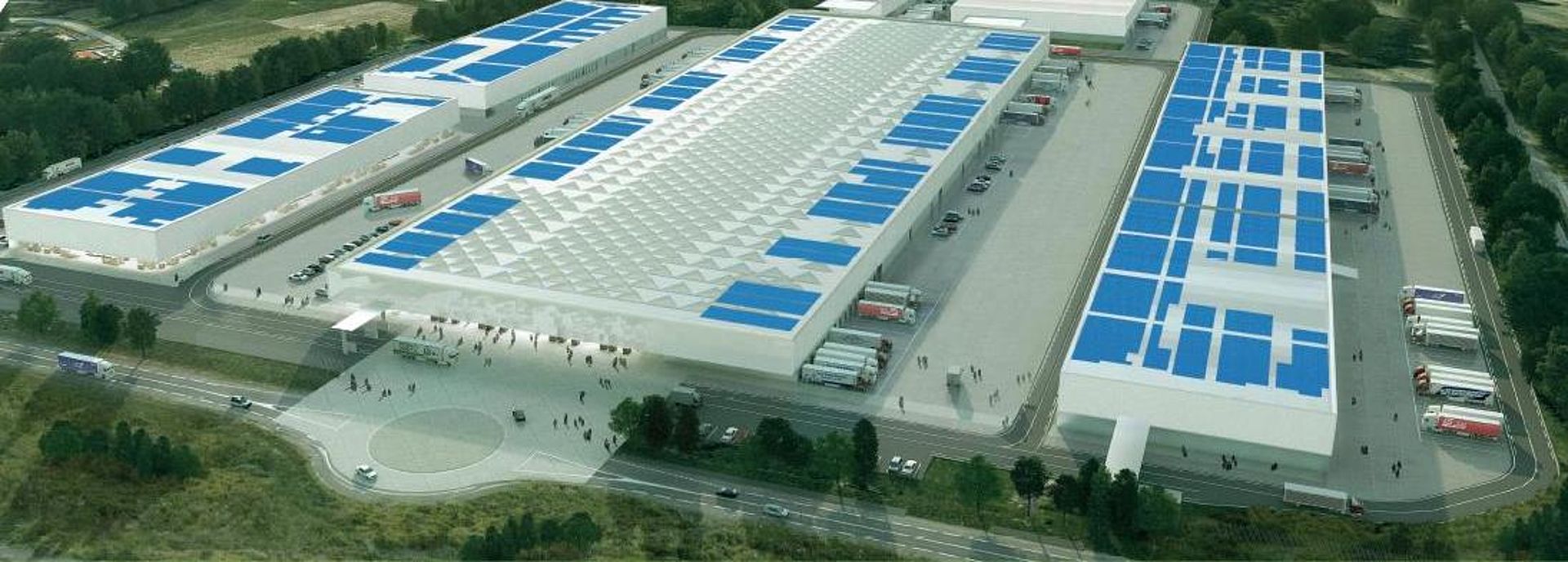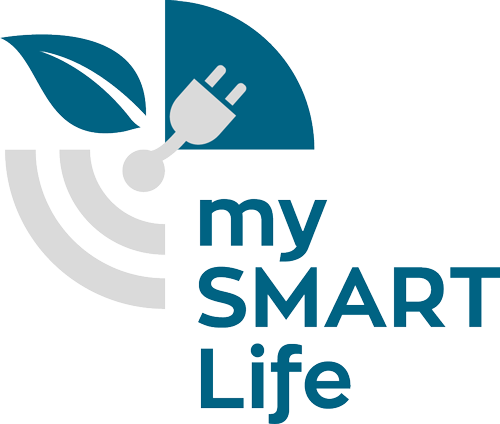Development of citizens or collective PV projects
Nantes Metropole promoted the development of citizens or collective photovoltaic (PV) projects and analysed technical, organisational and business models for further replication. Demonstration projects identified as part of the project included the following:
The first PV project (M.I.N industrial estate) has 30,000 m² of exploitable roof. A first PV plant of 28,000 m² of panels, 5MWp producing 5 GWh/year was installed by the end of 2018. A second “citizen” PV plant, analysed within the mySMARTLife project, has also been developed on the M.I.N’s roof. It was funded by over 600 citizens and represents 500 kWp for an estimated production of 500 MWh/year.
The second project is a collective self-consumption project in Malakoff social district. It consists of a PV plant on a social housing building that is connected to a nearby school and another council-owned building. Both buildings are complementary in their energy demand. As for the social housing building, the energy demand is high in the morning and in the evening, whereas in the other public facilities, the demand is low in the morning, high during the day and low in the evening.
To facilitate the deployment of small PV projects by citizens, Nantes Metropole has promoted the development of a solar cadastre with a consortium of companies and research centres led by “In Sun We Trust” start-up (see also https://nantes-metropole.insunwetrust.solar/). As a result, a scalable and innovative web platform has been developed. The platform models the solar potential per roof section of 1m2, gives an estimate of potential gains / savings achievable through a solar installation and lists relevant companies for the implementation of solar projects.
Large deployment of PV plants on City and Metropolitan buildings
As part of its solar plan, Nantes Metropole is deploying several small photovoltaic power plants to increase the production of decentralized renewable energy in its territory. Most of the energy produced will be self-consumed. The buildings chosen include schools, a swimming pool and technical centres. A specific budget is granted to develop PV plants on the Metropole territory for the next few years.
Digital boilers
This innovative technology consists in using the heat of computer servers in order to heat domestic hot water (DHW). This system can be considered as a renewable energy: the cooling needs for the computer servers are no longer required and the heating need of DHW is lowered.
Three buildings are being equipped with digital boilers of around 20 MWh per year, each connected by optical fibre. The first one is a new social house “hospitality pole“ under construction (over 900 m2), including catering, hygiene and health services for the poorest of Nantes. The second and third one, implemented by Nantes Metropole Habitat consist of one social housing building (over 2 200 m2) composed of 28 dwellings and a space for commercial activities and another social housing of 40 dwellings spread over 3000 m².
PV plant with electrical storage
The headquarter of a National Bank, CIC, will be transformed by Engie into a renewable energy hub thanks to the deployment of an 125 kWp plant solar photovoltaic plant, a solar power management system, a 50 kWh lithium-ion electrical storage band and a 22 kW electrical charging point. The system delivers energy on a continuous basis and helps to smooth the electric load curve by adjusting solar energy production to consumption (solar energy stored in a battery system to allow for consumption during the night).
Innovative organic PV plant
An innovative organic PV plant will be installed by Engie on the building of Nantes Congress Hall. This very innovative PV film produced by Armor group is flexible, very light, easy to install, and 100% recoverable. It uses less rare material than regular PV plants and is low-carbon as it is produced in Nantes with a low energy process.
Have a look at our public deliverables D2.6 and D2.7 to learn more.


